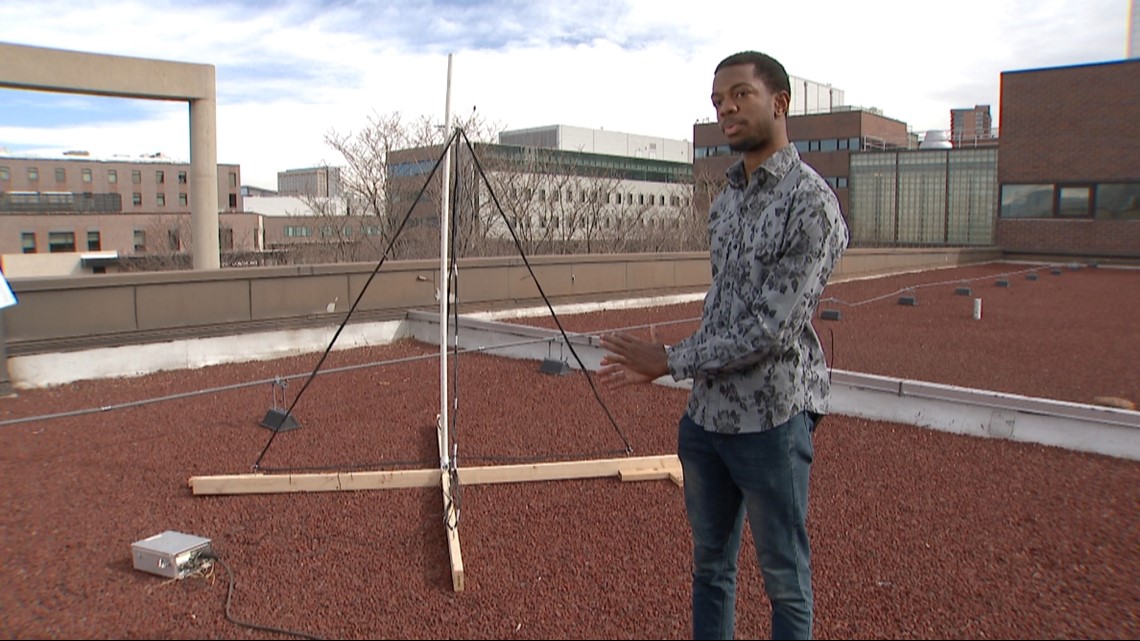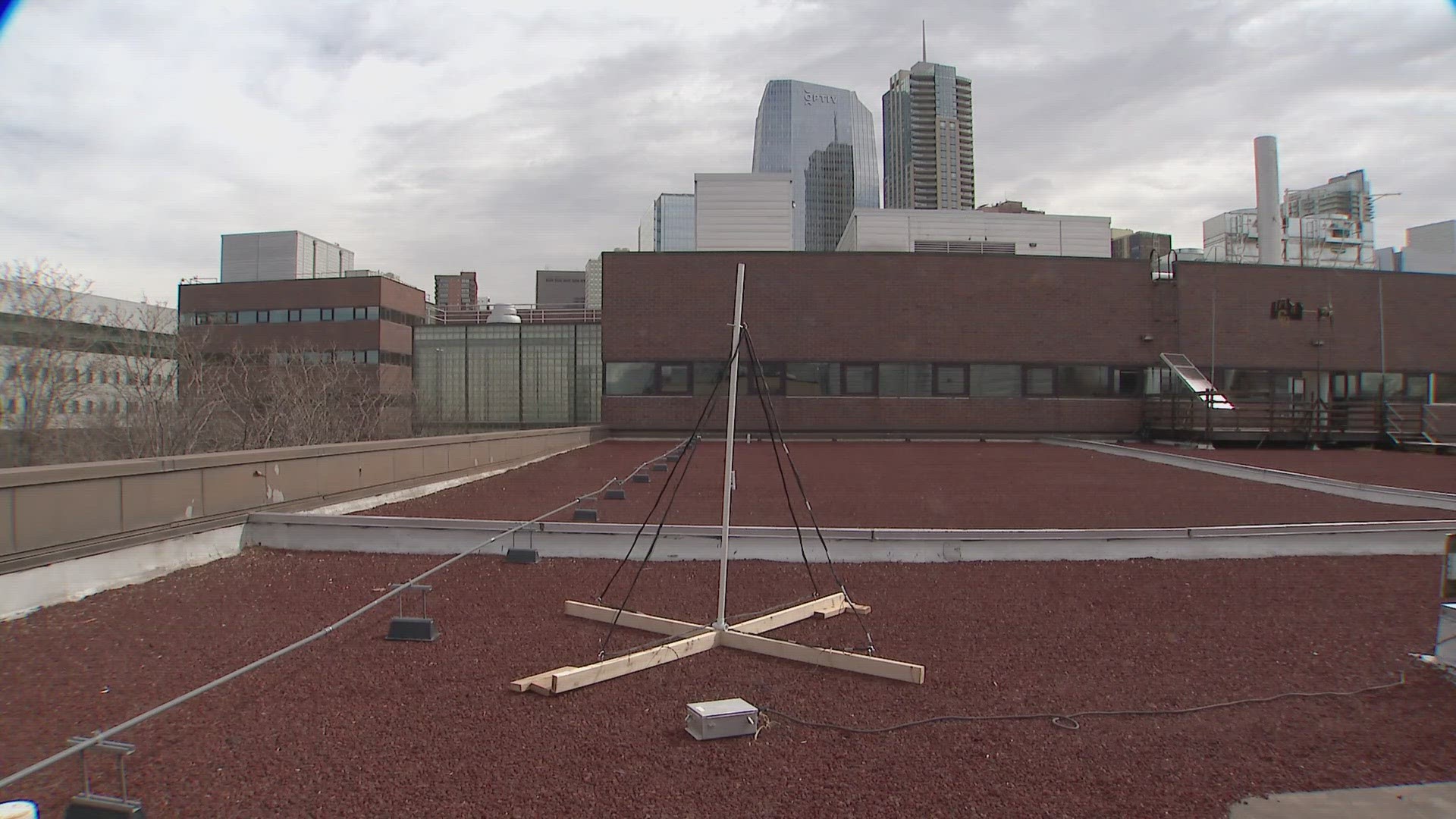DENVER — The sun impacts everything we do here on earth, including our technology. It's why the University of Colorado Denver (CU Denver) is gathering data during the eclipse on Monday.
Undergraduate and graduate students are partnering with Northglenn High School students to conduct this study. The focus of their research is to better understand how the sun impacts technology we use here on earth.
Electrical engineering junior Favour Ogbinaka said using a triangle-loop antenna, they'll measure and analyze low-frequency electromagnetic waves from a Navy transmitter on the East Coast. He said those signals bounce off the upper-atmosphere.
"What external activities are affecting our atmosphere? Trying to analyze those activities and predict or find a solution if those activities are causing a change or disaster to the atmosphere," said Ogbinaka. "This is something I am excited to figure out and that is why I love being an electrical engineer."


Department chair and professor of electrical engineering Mark Golkowski said they're trying to understand how the upper atmosphere responds to the sun, which happens each day and night. During the eclipse, he said the day-to-night change happens in a couple minutes, allowing researchers to capture high resolution data.
"We have a lot of satellites and satellite technology that can be disrupted by extreme space-weather events. Even our power grid can be disrupted by space-weather events," said Golkowski. "So, understanding how the upper-atmosphere responds to something like the eclipse helps us understand how it can also respond to other events as well."
This study is being funded by the National Science Foundation. Besides Denver, students will also be gathering data in Oklahoma and New York. CU Denver is also partnering with researchers at the University of California Berkley who are collecting data in Ohio, Michigan, and Texas.
SUGGESTED VIDEOS: Latest from 9NEWS

